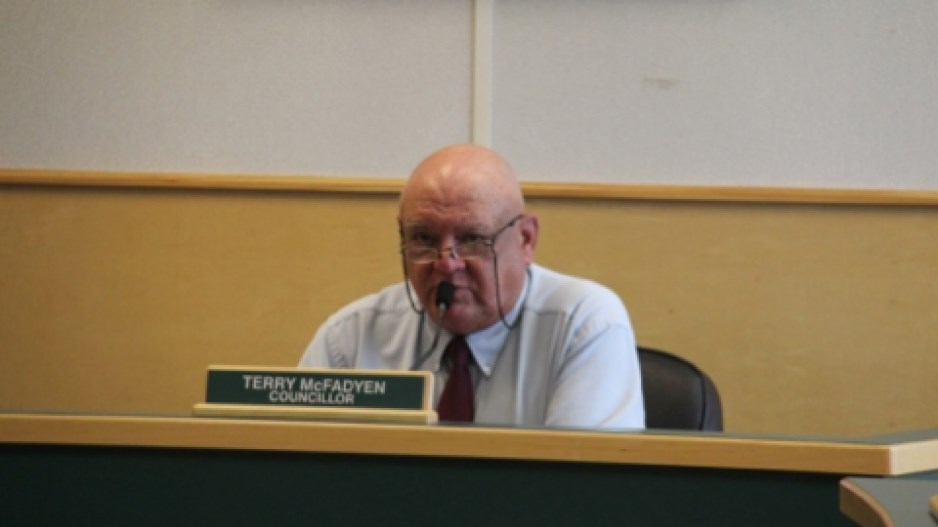Dawson Creek city council has approved a company’s proposal to build a liquefied natural gas processing and storage facility within the city limits.
Chief administrator Jim Chute said that AltaGas Ltd.’s proposed facility will be the first ever built in Dawson Creek. He added that it will likely be the first LNG plant built in British Columbia.
However, unlike the facilities expected to fuel a LNG “boom,” the gas produced is intended for local markets.
“Instead of being put in a tanker and shipped overseas, [the gas] will be put in trucks and shipped north,” Chute said. “The provincial government isn’t having any luck getting LNG plants built on the west coast, but we’ll have one in Dawson.”
The B.C. government hopes to export LNG to Asia, where the price is three to four times higher than in North America.
The AltaGas facility, slated to be built on a five-acre parcel on 27th Street, will process sweet natural gas, and will not “flare” or burn off excess fuel. It will not emit any odours and is certified “dark sky friendly.”
AltaGas’s facility was one of several Premier Christy Clark touted on her visit to the Peace River region earlier this summer. At a stop at Northern Lights College in Dawson Creek, the premier signed a letter of intent with the company’s CEO.
“LNG is a cleaner, cheaper energy source for northern communities,” the premier said in a release. “This letter of intent is another milestone for the development of B.C.’s LNG industry – not just for export, but also here at home.”
The facility is expected to produce 500,000 gallons of LNG per day at its peak, and will cost around $250 million.
Reforms to the Agricultural Land Reserve that could allow industry to operate on farmland without seeking exclusion would cut the city of Dawson Creek out of the oil and gas boom. That’s one of the messages the city will deliver to Victoria as part of its feedback on the provincial government’s proposed changes to the ALR.
In May, B.C.’s Liberal government passed legislation to divide the land reserve into two zones – one for the Vancouver Island, the Okanagan and the south coast, and another for the interior, Kootenays and
North.
The land reserve was created in the 1970s by the province’s first NDP government, as a way of protecting farmland from suburban sprawl. However, critics – especially in the Northeast – often complain that the ALR was created with the Fraser Valley in mind, and is an unnecessary layer of red tape.
The government is consulting local governments on the reforms. Municipalities have until Friday to give feedback.
Among other things, the government has asked municipalities whether they support “expanding the parameters for when non-agricultural related businesses are allowed to operate on ALR properties in Zone 2.”
According to a city report delivered to council Monday, the most common non-agricultural use of farmland is for oil and gas drilling.
Relaxing the rules around local permitting of industrial development in rural areas would likely send oil and gas related companies fleeing to rural areas, where property taxes are significantly lower and development standards more lax.
“The result ... could well be a flight of servicing companies out of the [city] boundaries to locate their premises in the surrounding rural area,” the report noted. “Fort St. John has identified significant negative impacts from this trend.”
“Out of the oil and gas boom, you would get nothing,” chief administrator Jim Chute told council.
Ultimately, council decided they could only support the relaxed rules if new oil and gas servicing companies agreed to build within the city. Alternatively, they could agree to come within municipal
boundaries.
The city also endorsed a number of proposals that would make it easier for rural landowners to operate breweries and agricultural tourism operations.




